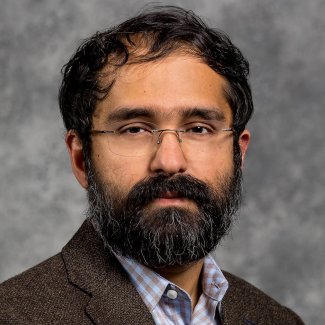
The Basu Lab, housed in South Dakota State University's Department of Mechanical Engineering and headed by assistant professor Saikat Basu, has been named the recipient of a three-year, $450,000 grant from the National Institute of General Medical Sciences to study the fluid mechanics of transport in dense cancerous tumors.
This is one of the lead projects supported under the Center for Diagnostic and Therapeutic Strategies in Pancreatic Cancer, which is located at North Dakota State University and is a Center of Biomedical Research Excellence (COBRE), funded by the National Institutes of Health.
The NIGMS is a sector of the NIH and supports basic research that increases the understanding of biological processes and lays the foundation for advances in disease diagnosis, treatment and prevention.
"Launching this new strand (fluid mechanics of cancer) in our research program is a major breakthrough for my team," Basu said. "My Ph.D. student, Mohammed Mehedi Hasan Akash, and intern alum Nilotpal Chakraborty deserve all the kudos."
The work from this grant continues a previous project of the Basu Lab, which applied fluid mechanics modeling to cancer research. The team developed a model for biomimetic reduced-order dense tumors.
"Now we are going to continue our previous work on a larger scale," Hasan Akash said. "We are going to develop a simulation-informed theoretical fluid mechanics model that can track transport processes inside the tumor. This will be novel work."
Previous work from Basu and his students had focused on deriving a relatively simple two-dimensional numerical model. That work was peer-reviewed and published recently in the Experimental and Computational Multiphase Flow, a Springer journal.
The newly funded project, which the team considers Phase II, will see the development of a sophisticated fluid mechanics framework that can additionally capture most of the essential biological complexities involved in fluidic transport in solid tumors. As Basu notes, a successful mechanics-based quantitative model can open new avenues for precision health care through new insights on targeted drug delivery inside of a tumor and will also bear relevance for cancer diagnosis.
Reference:
Akash MM, Chakraborty N, Mohammad J, Reindl K, and Basu S. Development of a multiphase perfusion model for biomimetic reduced-order dense tumors. Experimental and Computational Multiphase Flow. 2023 Mar 5:1-1.
- Contact:
- Telephone number: 605-688-6161
Republishing
You may republish SDSU News Center articles for free, online or in print. Questions? Contact us at sdsu.news@sdstate.edu or 605-688-6161.

